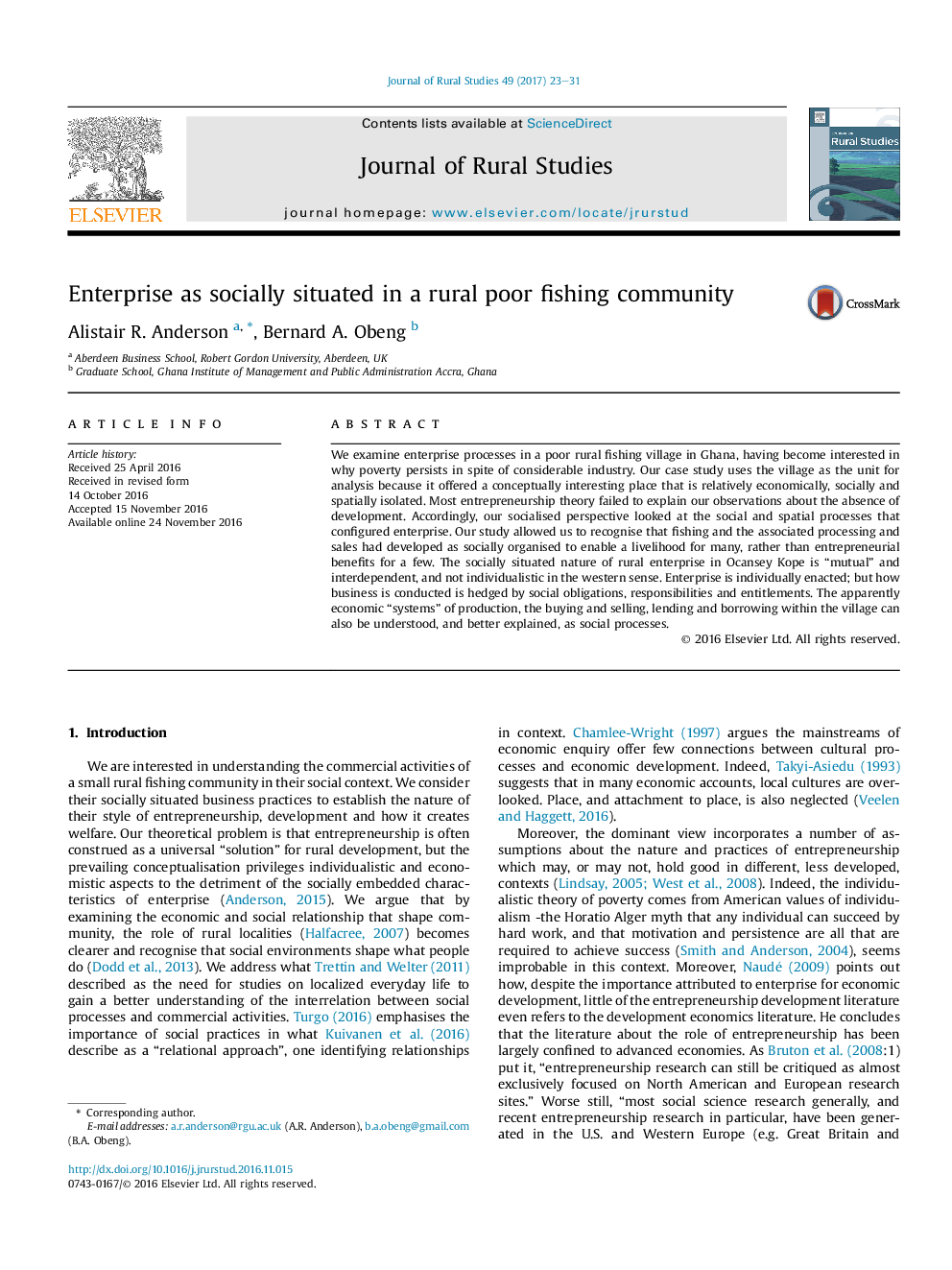| Article ID | Journal | Published Year | Pages | File Type |
|---|---|---|---|---|
| 6460296 | Journal of Rural Studies | 2017 | 9 Pages |
â¢There are different ways of being enterprising, some are socially orientated.â¢The importance of place, the social and spatial context shapes enterprise.â¢The conditions of poverty can reproduce poverty.â¢Theories, as explanations, should recognise the role of context.
We examine enterprise processes in a poor rural fishing village in Ghana, having become interested in why poverty persists in spite of considerable industry. Our case study uses the village as the unit for analysis because it offered a conceptually interesting place that is relatively economically, socially and spatially isolated. Most entrepreneurship theory failed to explain our observations about the absence of development. Accordingly, our socialised perspective looked at the social and spatial processes that configured enterprise. Our study allowed us to recognise that fishing and the associated processing and sales had developed as socially organised to enable a livelihood for many, rather than entrepreneurial benefits for a few. The socially situated nature of rural enterprise in Ocansey Kope is “mutual” and interdependent, and not individualistic in the western sense. Enterprise is individually enacted; but how business is conducted is hedged by social obligations, responsibilities and entitlements. The apparently economic “systems” of production, the buying and selling, lending and borrowing within the village can also be understood, and better explained, as social processes.
